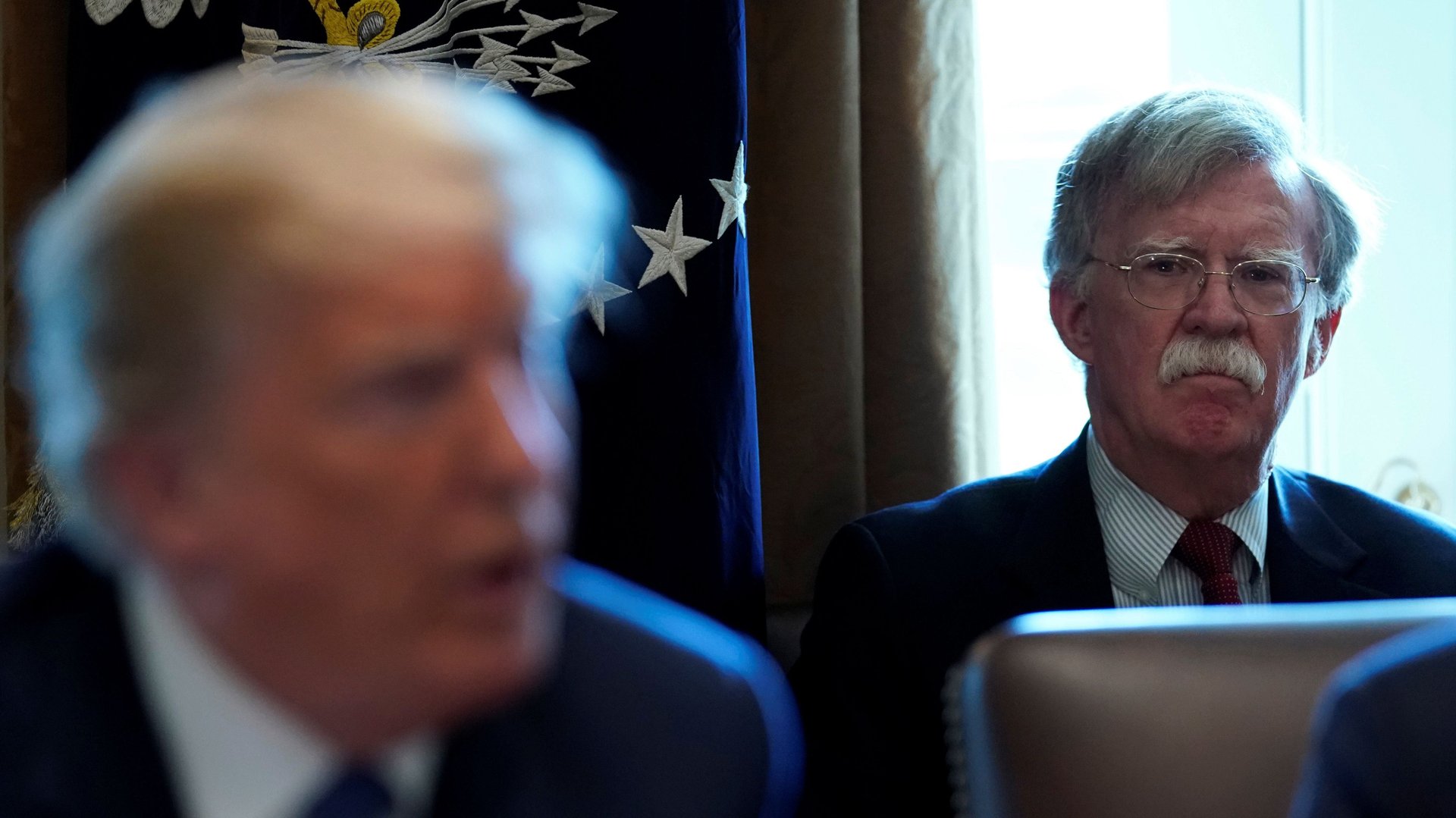John Bolton is pushing “all the wrong buttons” ahead of the Trump-Kim summit—possibly on purpose
North Korea on Wednesday threatened to cancel the upcoming summit between Kim Jong-un and Donald Trump. In a scathing statement delivered via state news agency KCNA, Kim Kye-gwan, the nation’s first vice minister of foreign affairs, railed against US national security adviser John Bolton’s suggestion that the “Libya model” of denuclearization could be applied to North Korea. That model calls for the Kim regime to relinquish all of its nuclear weapons before it receives economic help and other benefits.


North Korea on Wednesday threatened to cancel the upcoming summit between Kim Jong-un and Donald Trump. In a scathing statement delivered via state news agency KCNA, Kim Kye-gwan, the nation’s first vice minister of foreign affairs, railed against US national security adviser John Bolton’s suggestion that the “Libya model” of denuclearization could be applied to North Korea. That model calls for the Kim regime to relinquish all of its nuclear weapons before it receives economic help and other benefits.
The Libya reference was a dark one to make ahead of a summit focused on denuclearization. In 2003, Libyan leader Muammar Qaddafi agreed to give up his nascent nuclear program, and eight years later US-backed rebels violently killed him. Last year the Kim regime, via KCNA, noted that the regimes of Qaddafi and Saddam Hussein in Iraq were each destroyed after willingly giving up their nuclear programs. It added that North Korea wouldn’t follow that path.
Making the Libya comparison “pushes all the wrong buttons… The diplomacy with North Korea is going very well and Bolton threw a spanner in the works,” Ploughshares Fund president Joe Cirincione, a disarmament advocate, told Bloomberg (paywall).
Following yesterday’s angry KCNA statement, the White House backed away from Bolton’s statements on the Libya model.
Part of the problem is the Kim regime’s strong aversion to Bolton himself. Yesterday’s KCNA statement read, “We shed light on the quality of Bolton already in the past, and we do not hide our feeling of repugnance towards him.”
Bolton is a war hawk who’s long pushed for regime change in North Korea. Shortly before starting his current role in March, he argued in a Wall Street Journal column (paywall) that a preemptive attack on North Korea was both prudent and legally justified. As a State Department official in the early 2000s, he played a key role in steering the Bush administration away from engagement with North Korea and toward classifying it as part of the “Axis of Evil.”
Bolton and others in the Trump administration want North Korea to completely and verifiably get rid of all its nukes as quickly as possible. Pyongyang seeks a phased process in which each side makes concessions in stages. Of course, there’s every reason to fear that North Korea is secretly hoping to reap economic benefits while appearing to denuclearize, only to later backtrack and continue with its nuclear program. It has pulled such stunts before.
One idea floated by a top US diplomat at a Wall Street Journal conference this week is that the process would start with the US making some form of “big down payment” while North Korea handed over some of its nuclear weapons. Besides building trust on both sides, it would also give the US insights into the North’s weapons program, which would be valuable even if talks later did break down.
That’s one arrangement that could conceivably emerge from next month’s summit, should it take place. Bolton has another view on the meeting, which he shared with Fox News in March: “If you look at it as a way to foreshorten the amount of time we will waste in negotiations that will never produce the result we want—which is Kim giving up his nuclear program—I think that’s a good thing.”